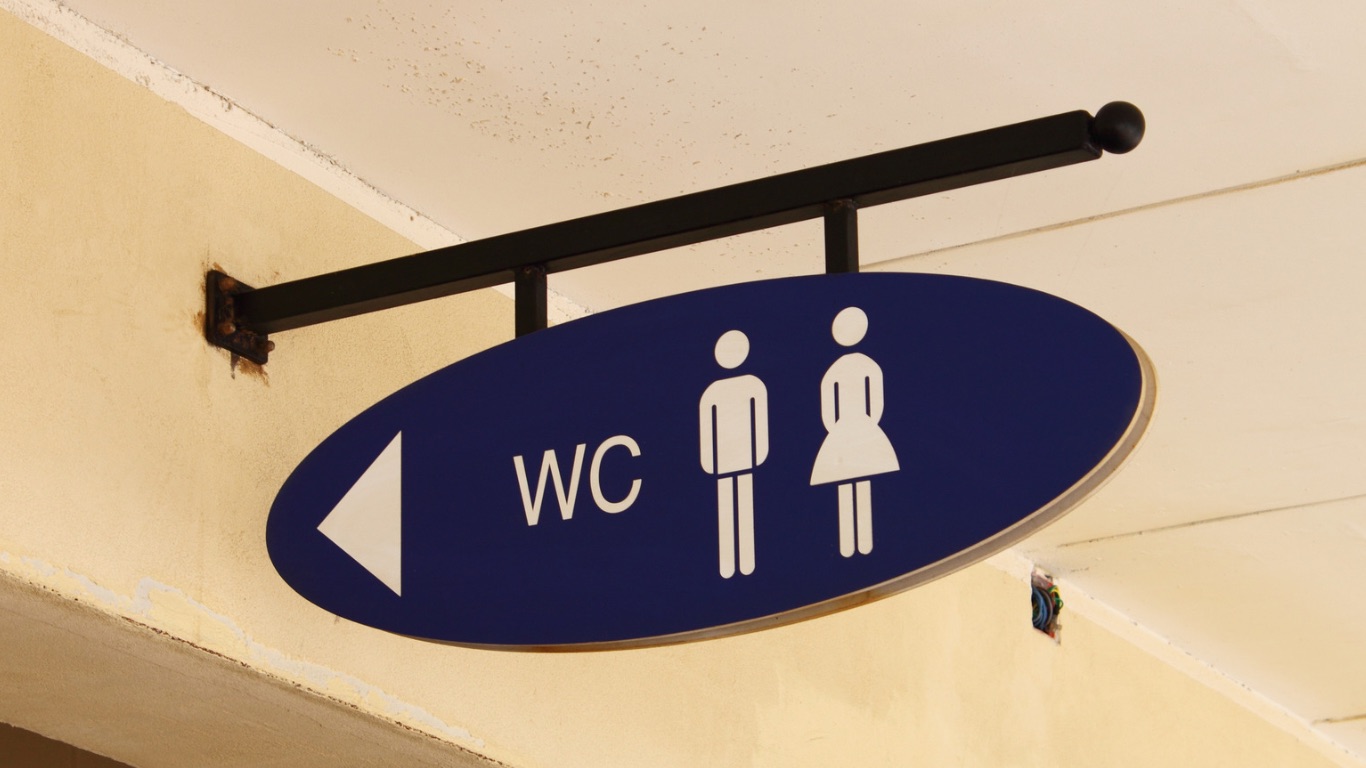
Does Society Start with Toilets?
The branch of the People's Democratic Party of Tajikistan (PDPT), the ruling party in the country, in the Pyanj district has announced the construction of a public toilet (!) in the center of the district. This party branch claims that the toilet was built according to party projects focused on the construction of sanitation facilities. Typically, political parties are seen as the leading forces in society, playing a crucial role in guiding the people toward a better future. But can a ruling party, whose branch presents the construction of a toilet as a "strategic project," truly be considered among those capable of offering a plan for the salvation of a nation? Before answering this question, it should be noted that this party branch in the Pyanj district does not have its own office. Previously, it was located in the building of the district newspaper "Hayoti Nav," and it has now moved to a location behind the "Amonatbank" building. These are government-owned buildings. I am not sure whether the party is renting the space or is simply a
"guest" there. However, last summer, there were rumors among teachers in the Pyanj district that the local education authorities were deducting 40 somoni from each teacher's salary to fund the construction of the office for this party branch. Looking at the party more broadly, its leadership takes pride in the fact that the PDPT did not participate in the civil war in Tajikistan, and it claims that, thanks to its guidance, the country has progressed and played a significant role in building the republic. However, it’s important to remember that the party was established two years after the war had ended, a development that was driven by the fall of communism in Russia. After the collapse of the Communist Party in Russia and Tajikistan, there was a need to create a ruling party. Thus, the PDPT emerged, but most of its members, especially those in higher positions, were former communists who, after the fall of the Communist Party, sought to secure their power through the new party. For this reason, the PDPT inherited many of the working methods of the communists. Although the name of the Communist Party was not frequently mentioned during the 1992 war, the red flag was raised in opposition to the white flag of the opposition. Abdulmajid Dostiev, one of the main founders of the PDPT, was a key figure on one side of the civil war. Nevertheless, peace was eventually achieved, and now the party claims it is building democracy. However, it is unaware that it continues to follow the path of the Communist Party. One of the characteristics of the PDPT that was adopted from the Communist Party is the merging of the party apparatus with state institutions—a feature that the renowned British political scientist Archie Brown considers a hallmark of communist parties worldwide. As a result, today, the ruling party is barely distinguishable from the government, and when hiring citizens, their "political beliefs" play a significant role. But let's set all this aside. If this party, after nearly thirty years since its founding, is only now realizing the importance of building toilets, how much more time will it need to understand what it takes to build a society? It seems that only recently has the PDPT branch realized the necessity of constructing a toilet in the district, and even this is based on a program from the regional branch of the party. Recently, there has been a debate on social media about whether charitable aid to those in need should be made public. Users have split into two camps: some argue that the aid should be publicized, while others believe the opposite. Regardless of this debate, the charity efforts of individual members of society and various groups have often been made public. These examples suggest that society is ahead of the parties that are supposed to lead it. If the party branch has only now decided to build a toilet, various groups within this society, particularly labor migrants, have long been helping to improve the lives of families by buying or building homes for them. One might argue that the decision to build a toilet is related to the economic conditions in the Pyanj district. This is an understandable aspect. But what matters here is not the money but the "initiative" that this party so loves to emphasize. If the party were truly a pioneer and proved itself as a leading force in society, today it could be speaking of a well-developed Tajikistan, built under its guidance but through the efforts of the entire society, rather than of a country where the lack of toilets is considered a "strategic" problem.



